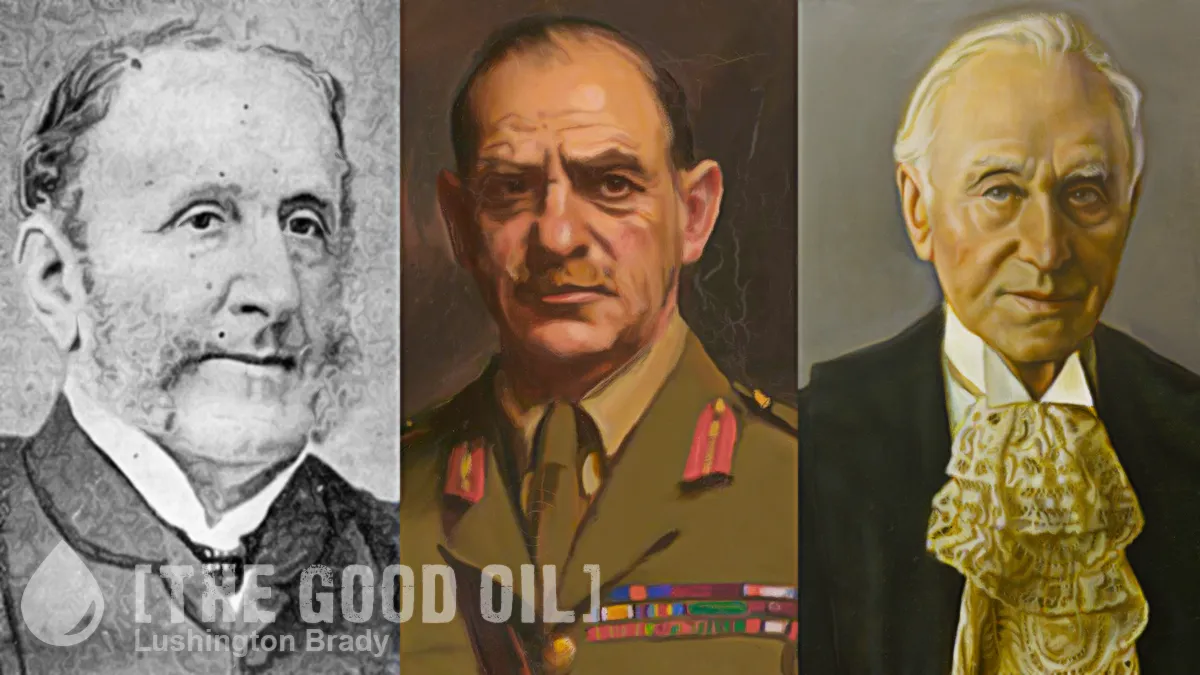Table of Contents
As I wrote, in the grim month of October 2023, we really ought to Thank God for the Jews. As Thomas Cahill subtitles his book on the Jewish contribution to the modern world: this Tribe of Desert Nomads Changed the Way Everyone Thinks and Feels. From philosophy and religion, to art and science, few peoples have made such an outsized contribution to human advancement as the Jews.
Fully 22 per cent of Nobel Prizes have been awarded to Jews. As they make up just 0.2 per cent of the global population, that makes their share of Nobels more than 11,000 times the average. Beyond Nobels, though, the effect of Jews on Western thought is so profound and far reaching that we hardly even notice. We simply take them for granted.
As thousands of anti-Semitic goons march weekly in Australian cities, it would no doubt outrage them to learn the distinguished, if unobtrusive, ways Jews have contributed to Australia. Beginning with the six Jewish convicts who sailed with the First Fleet, in proportion to its population, no other ethnic or religious group has contributed so much to Australia.
Indeed, Jews have been criticised or condemned partly because as a people they are so successful in this land.
Jews became noticeable in public life earlier in Australia than in most other countries. Even as early as 1840 they had the same right to sit in legislative bodies as did members of mainstream churches. And in the course of time they also commanded enough respect, when they stood for parliament, to attract large numbers of Christian voters.
Jewish Lionel Samson was elected to the WA Legislative Council in 1849 – nearly a decade before Jews were even eligible to stand for the House of Commons in Britain (Disraeli, while ethnically Jewish, was baptised an Anglican). At the first federal parliament in 1901, four of the 108 members were Jews. When, in 1930, Australia chose its first native-born governor-general, the Crown’s representative in Australia was a Jew.
Sir Isaac Isaacs, the son of a migrant tailor […] became our Number One Citizen when probably no other country in Europe and the Americas so honoured a Jewish inhabitant. Another talented Jew, the Melbourne law professor Sir Zelman Cowen, was to become governor-general. Yet another, Lord Casey, is said to be a descendant of John Harris, a Jewish convict who was transported here for stealing eight silver tablespoons.
Fifteen years before Isaacs’ appointment, another Jew –the son of German Jewish parents, no less – became one of the most renowned commanders of WWI.
Sir John Monash, the soldier […was] born in Melbourne in 1865, soon after the arrival of his German-speaking parents, he studied at a primary school that stood just a short walk from the Melbourne Cricket Ground and then attended a rural school in the small NSW town of Jerilderie. There his father ran a small shop. Maybe one third of the big emporiums in Australia in the following century were to be founded by Jews […]
As a volunteer soldier in WWI, Monash sailed to the Middle East and at the age of 50 was one of the commanders at Gallipoli. There the experienced British officers held the highest posts but it soon became apparent that the observant Monash was the more likely to advance the art of warfare.
Monash was an innovator in combined arms warfare on the Western Front, exploiting infantry, artillery and the new inventions of aircraft and tanks in carefully co-ordinated attacks.
Commanding a large army of Australian and American soldiers, he achieved major victories against the Germans in 1918 […] He was even hailed as the soldier who virtually won the war, though the long British naval blockade, by depriving Germany of imported foods, was probably just as important in achieving victory.
Monash duly became enormously popular with both diggers and civilians. Had he chosen – and the overtures were made – he could easily have swept into power in the tumultuous 1920s as a popular dictator. He refused. On his death in 1931, Monash’s funeral attracted probably the biggest crowd ever seen at an Australian funeral.
Anti-Semitism existed in Australia in this time but it was also accompanied in various towns and cities by respect for Jews. Many such families, rarely noticed in the history books, are fascinating […]
So many of our big names in finance and commerce came from [the post-WWII] wave of immigration, spread mainly over the 20 years from 1936 to 1955. Notable Jewish families included the Abeles, Adlers, Blooms, Finks, Gandels, Lowys, Pratts, and at least a dozen more. Whereas the Scots were the main philanthropists in Australia in the 19th century, the Jews have now taken their place.
Now, another group is on the rise in Australian society – one that is implacably anti-Jewish.
While the post-war Jews were so influential, they were increasingly surpassed in numbers by Muslims. Back in 1900 Muslims had minimal influence on the country.
Although Muslims did commit the nation’s first undisputed terror attack – when two Muslims opened fire on a picnic train at Broken Hill killing four (two of them women) and wounding seven. The terrorists were answering a call to global jihad from the Ottoman empire.
As late as the census of 1991, they still had less than one per cent of the nation’s population.
Today, in contrast, Muslims form about 3.3 per cent of the nation’s people and are at least eight times as numerous as Jews. As their birthrate is very high, the Muslim proportion of the population will continue to grow.
And how’s that working out for us?







